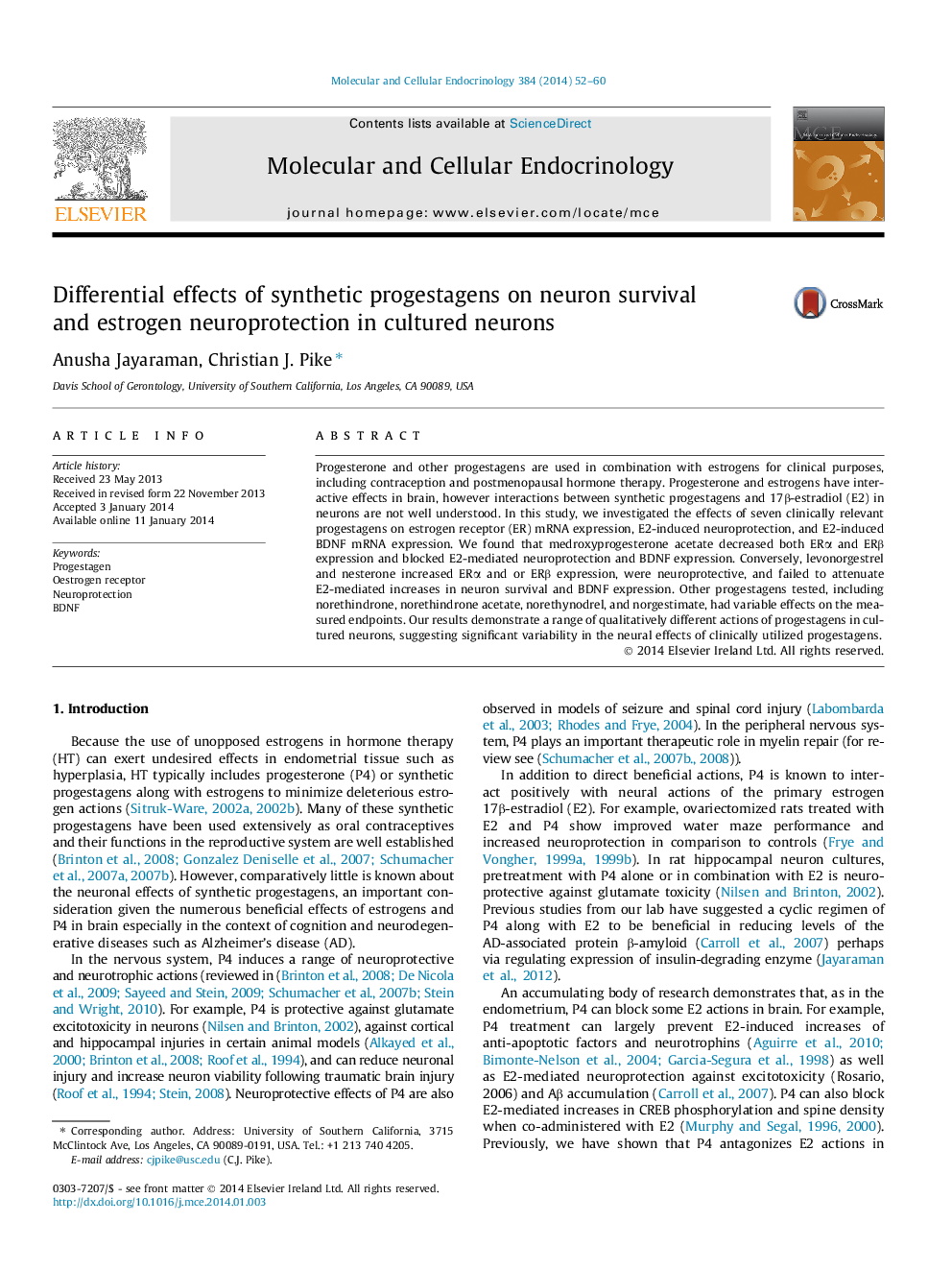| Article ID | Journal | Published Year | Pages | File Type |
|---|---|---|---|---|
| 2196047 | Molecular and Cellular Endocrinology | 2014 | 9 Pages |
•Progestagens are used clinically but their neural effects are poorly understood.•Progesterone and clinically relevant progestagens were examined in cultured neurons.•Progesterone inhibits estradiol-induced neuroprotection and regulation of BDNF.•Medroxyprogesterone acetate closely mimics the effects of progesterone.•Other progestagens vary significantly in terms of progesterone-like actions.
Progesterone and other progestagens are used in combination with estrogens for clinical purposes, including contraception and postmenopausal hormone therapy. Progesterone and estrogens have interactive effects in brain, however interactions between synthetic progestagens and 17β-estradiol (E2) in neurons are not well understood. In this study, we investigated the effects of seven clinically relevant progestagens on estrogen receptor (ER) mRNA expression, E2-induced neuroprotection, and E2-induced BDNF mRNA expression. We found that medroxyprogesterone acetate decreased both ERα and ERβ expression and blocked E2-mediated neuroprotection and BDNF expression. Conversely, levonorgestrel and nesterone increased ERα and or ERβ expression, were neuroprotective, and failed to attenuate E2-mediated increases in neuron survival and BDNF expression. Other progestagens tested, including norethindrone, norethindrone acetate, norethynodrel, and norgestimate, had variable effects on the measured endpoints. Our results demonstrate a range of qualitatively different actions of progestagens in cultured neurons, suggesting significant variability in the neural effects of clinically utilized progestagens.
